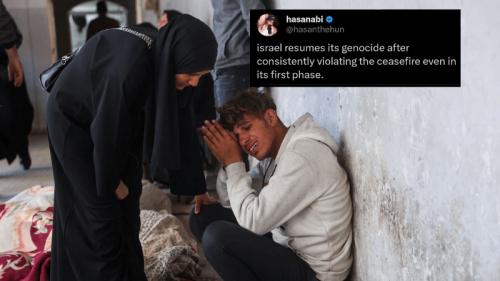WASHINGTON: The United States, Norway and other key European governments urged Afghanistan’s Taliban rulers on Thursday to do more to gain international acceptance.
Special Representatives and Special Envoys of the European Union, France, Germany, Italy, Norway, the United Kingdom and the United States met in Oslo on Jan 24 to discuss the situation in Afghanistan. The meeting included sessions with representatives of the Taliban and Afghan civil society actors.
In a joint statement released in Washington and Oslo, the participants urged the Taliban to do more to stop the alarming increase of human rights violations, including arbitrary detentions, forced disappearances, media crackdowns, extra-judicial killings, and torture.
The statement specifically mentioned Taliban-imposed prohibitions on women and girls’ education, employment and freedom to travel without a male escort and recent detentions of women’s rights activists.
The statement said that the Oslo meeting focused on the urgency in addressing the humanitarian crisis in Afghanistan and highlighted necessary steps to help alleviate the suffering of Afghans across the country.
Participants recognised steps taken to ease access for humanitarian workers, male and female, while also expressing concern that there were still certain impediments in place. The participants also reiterated the importance of swiftly removing all conditions and obstacles to the delivery of humanitarian aid.
Raised the importance of respect for human rights and the strong need for an inclusive and representative political system to ensure stability and a peaceful future for Afghanistan.
They noted, “with grave concern”, the absence from, and limitations on access to, secondary schools for girls in many parts of the country and underscored the importance of higher education for women as well as job opportunities for women in all fields.
They welcomed the Taliban’s public pledges that all women and girls can access schools at all levels when schools across the country reopen in March but emphasised the need for practical, budgetary and technical preparations to “ensure this becomes a reality.”
The participants reaffirmed their expectation that the Taliban will uphold their commitments on counterterrorism and drug trafficking.
They noted that their governments were expanding relief operations, helping prevent the collapse of social services and supporting the revival of Afghanistan’s economy.
The participants noted the importance of increasing cash liquidity and support to the banking sector in order to help stabilise the Afghan economy. They further pressed for the development of a transparent, sound strategy to restore confidence in the financial sector.
The participants made clear that their meetings with the Taliban “in no way implied any sense of official recognition or legitimisation of the interim government announced by the Taliban in September 2021.”
They welcomed updates from the women and civil society actors and the Taliban representatives on the status of their conversations on Jan. 23 and hoped that the Taliban will follow up on concerns put forward by other Afghans.
The participants also emphasised that “the source of domestic legitimacy for any future government of Afghanistan will be the Afghan people themselves.”
Published in Dawn, January 28th, 2022













































